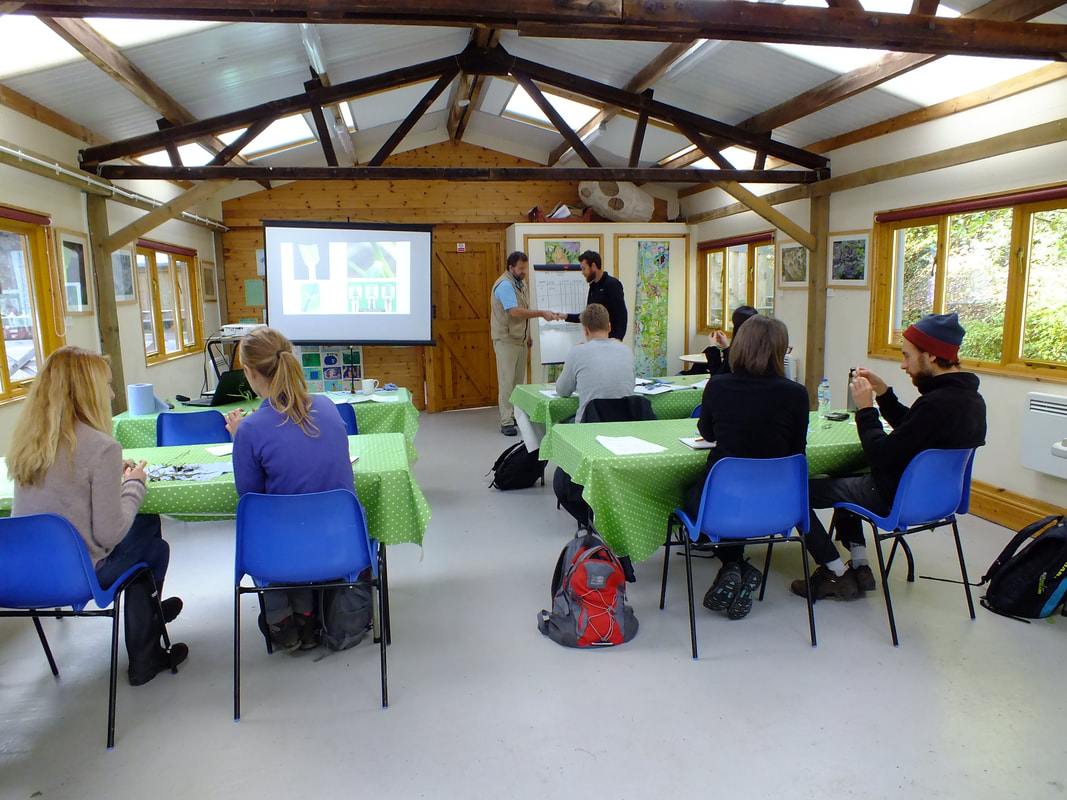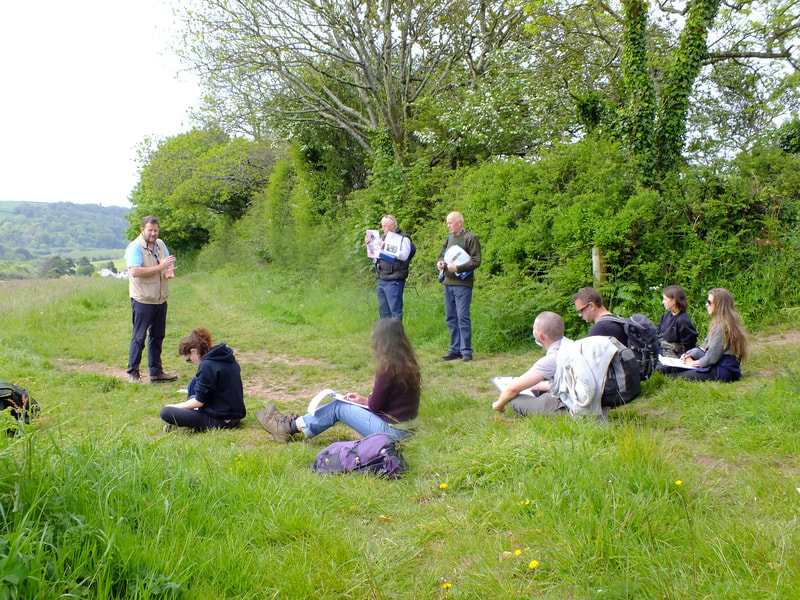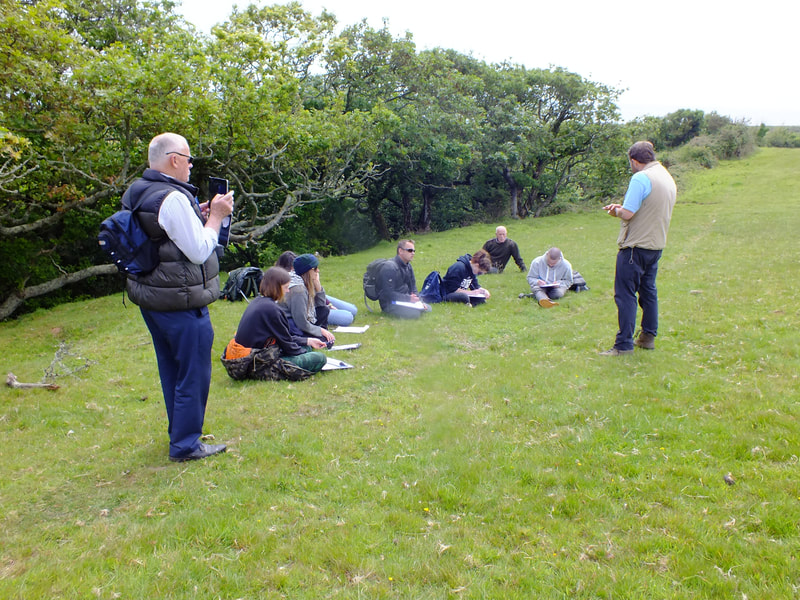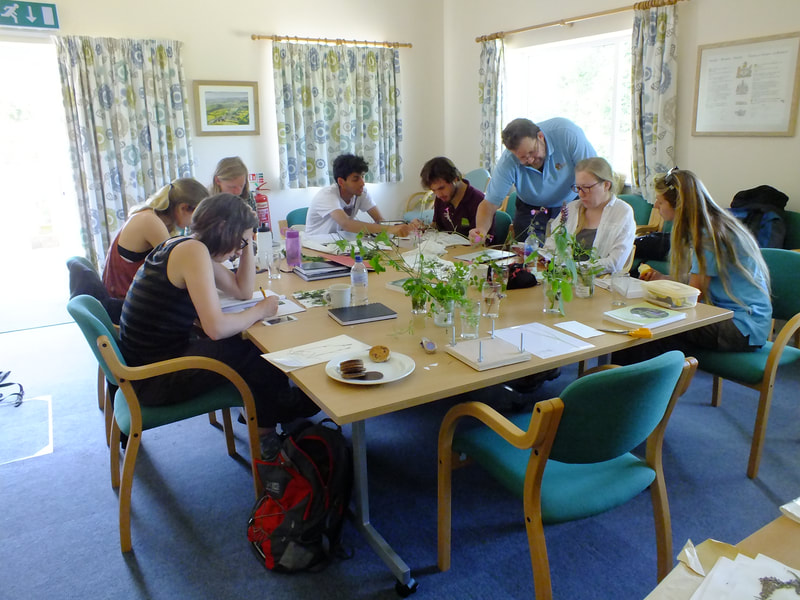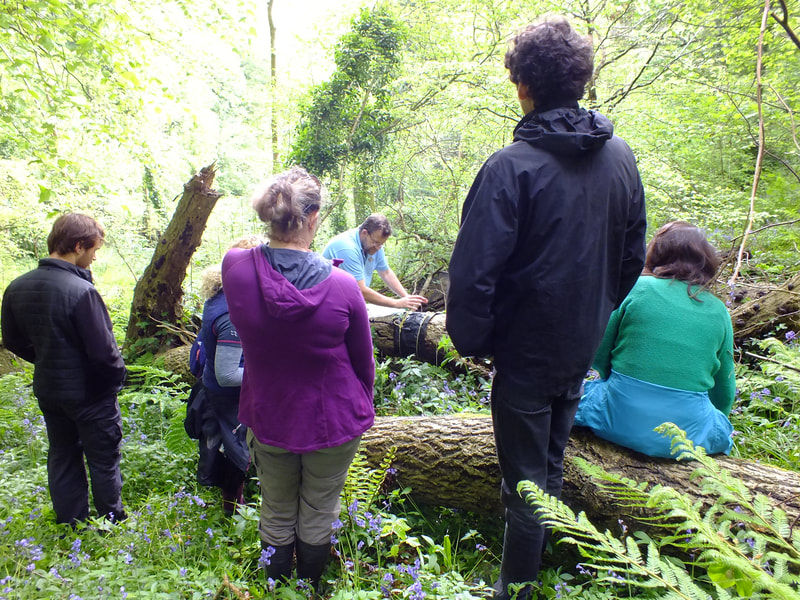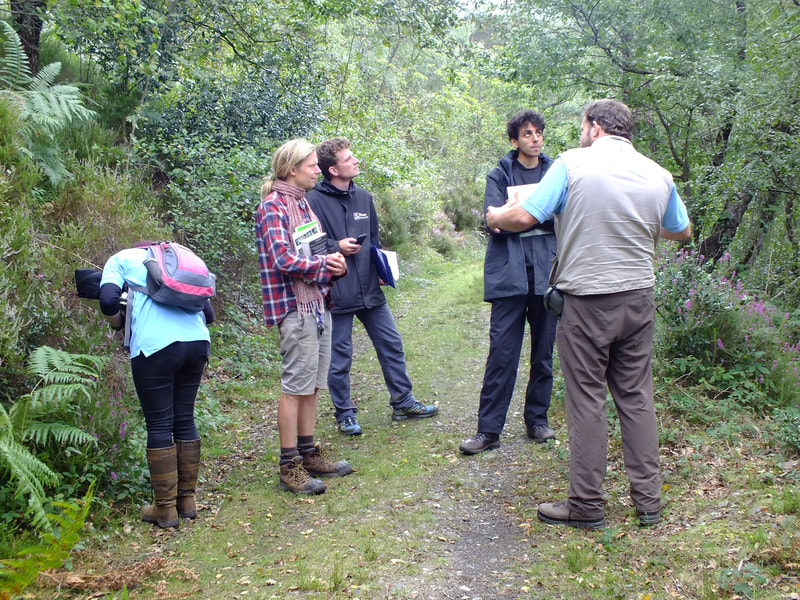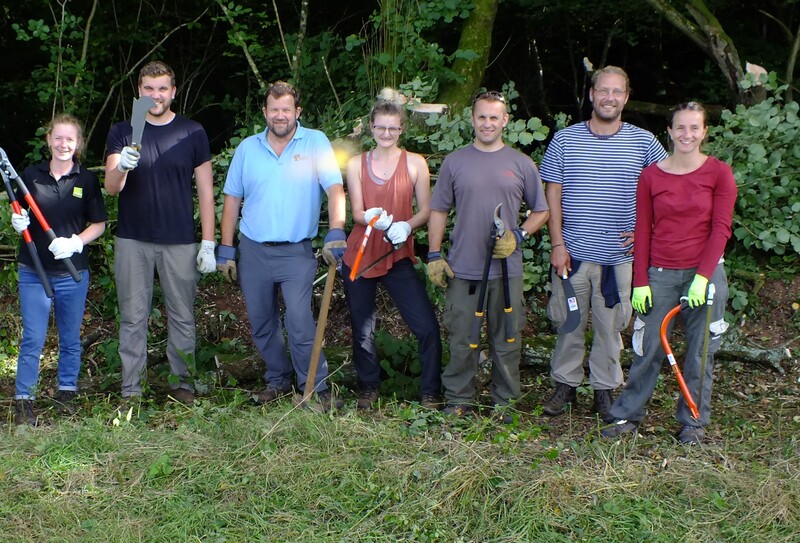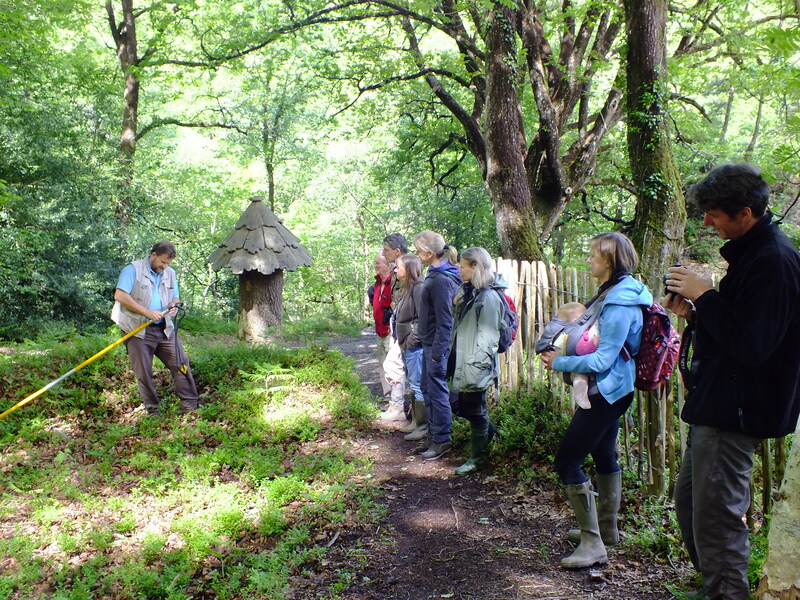Private courseThe farming and conservation sectors are dynamic environments often responding to changes in national and international policy. In the UK there is a growing awareness in the rural industries to develop a more sustainable land use policy. This will entail farmers, foresters, woodland owners and conservation organisations to develop a working relationship with the aim of reducing the impact of land use operations on the natural world.
One important element associated with conservation is the ability to identify organisms to at least the family level but better still to the species level. Over the last 6 years I have developed and run a range of field courses to help individuals and small groups improve their taxonomy skills. |
Grass identification course held at the woodland centre at Yarner Wood, East Dartmoor National Nature Reserve.
|
|
The range of taxonomy courses available to individuals and small groups are as follows:
Each course last a whole day, 9:30am through to 4:30pm, refreshments are available (tea, coffee, soft drinks and biscuits) and each course is £55 per person or a reduction on group booking. Candidates are awarded a certificate of completion at the end of the day which can form part of portfolio of skills development. |
Working from left to right, starting at top left: A brief on arable flora, describing low input permanent pasture and key species, in class sample identification using keys and field guides, collecting invertebrate samples from a novel bubble wrap trap.
|
|
To accompany the range of taxonomy courses I have also developed and run a range of habitats, ecology and practical botany courses as follows:
|
Working from left to right, starting top left: Describing key features and key habitat species in an ancient woodland, part of the sustainable forest ecosystem course, hedge laying course, demonstrating how to sample canopy invertebrates, in the sustainable forest ecosystem course.
|
Home
Explore Agriculture
Conservation in the Farmed Environment
Explore Conservation
Lowland Dipterocarp Forests of SE Asia
Explore Conservation of Dipterocarps Forests
Make a Difference
Explore Agriculture
Conservation in the Farmed Environment
Explore Conservation
Lowland Dipterocarp Forests of SE Asia
Explore Conservation of Dipterocarps Forests
Make a Difference
